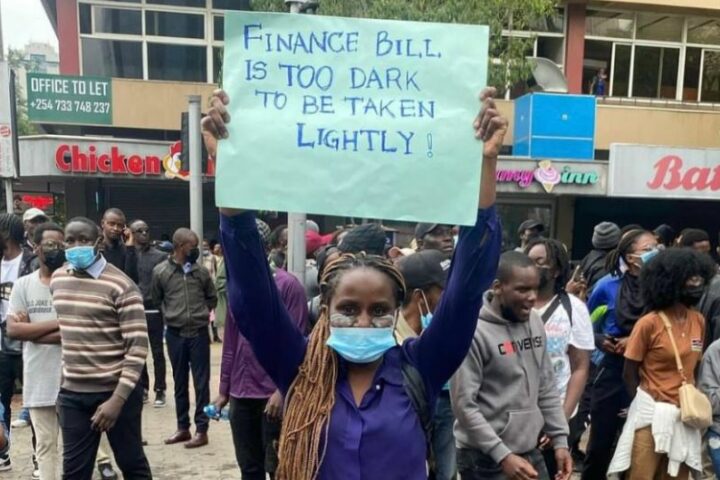 By Githae Mwangi
By Githae Mwangi
For the last fifty nine years, Kenya has been an independent country able to govern itself and forge its own future.
However, surprisingly, we are still facing the same problems those who fought for independence were facing at the time.
In fact, during the 2022 campaign period, the Azimio Leader Raila Odinga said his objective, if elected president, would be to eradicate poverty, ignorance, and disease.
These were the same problems the first government said it would cure when it took over from the colonial government.
How is this possible?
We have had four presidents since then, now on our fifth, so how comes they have not managed to eradicate these basic problems?
Well, the answer is quite simple; we have not curved out an identity as a country and, therefore, lack a unifying vision and purpose.
We do not have our own identity as a people.
Today, if researchers or any one came to Kenya and asked random people what our identity as a people is, they would get all kinds of answers.
Farmers would say Kenyans are farmers, fishermen would say they are fishermen, and pastoralists would suggest they are pastoralists.
Nobody would give an answer of what we believe in as a country or what our values are because we do not have any. For instance, what is our take on tribalism? At first glance, many people would condemn it.
However, when it comes to choosing leaders, partners, and teammates, they would choose their tribesmen.
Moreover, when faced with a question like “What is our stand on corruption?” the answer would be the same.
We would claim we are not corrupt people, but still go ahead and practice it. For instance, many people condemn corrupt leaders, but still vote for them.
Therefore, although we are a united country, we are still divided as to what our unifying values are; hence, there is a need to craft a statement that highlights our values as a country and start teaching it in schools to guide generations to come.
Many countries have taken this approach and succeeded in changing their futures.
For instance, in the US, they invented the ‘American Dream’ which in simple terms means that with dedication and hard work, anyone can achieve their hopes and dreams in spite of their cultural, racial, and religious backgrounds.
Therefore, anyone growing up there understands that the only way to success is to follow their dreams, not by being corrupt or benefiting from nepotism.
In Kenya however, people have abandoned those practices and adopted corruption instead. That is why anyone who is ambitious enough wants to join politics because it gives them an opportunity to steal from the public.
Unfortunately, younger generations are also starting to buy into the idea. In fact, when having such discussions, one of the questions some will ask, and with good reason, is “name one person who became rich in Kenya without being corrupt?” Unfortunately, the correct answer is close to none.
Therefore, we need to create our own value system and teach it to future generations.
We also do not have a unifying vision to guide our development agenda.
In fact, in most cases, we think in terms of five-year periods. That is why all administrations since independence have had different development agendas.
Unfortunately, what we have failed to learn and internalize is that is not how countries develop. They do so by having overarching long term development strategies that inform politics, policies, and decision-making.
For instance, China has become a super power within a very short period of time because of the long term vision of the Communist Party.
When Deng Xiaoping took over from Mao as China’s supreme leader, he changed its vision from an enclosed to an open economy.
Moreover, he encouraged people to be producers, not consumers. Fast forward, China has officially become the world’s factory and as a result, the party has raised over one hundred million people from abject poverty.
The current president, XI, is still building on that vision and is now pursuing a self-reliant Chinese economy.
Unfortunately, the situation in Kenya is different. First and foremost, we do not have overarching and ideological political parties.
Most of them have no ideas at all because they are largely tribe and region-based. Consequently, they have no vision for the country they seek to govern and therefore, come up with manifestos on the spot.
Hence these manifestos are not properly developed and soon become difficult to implement.
Moreover, most of our political parties do not outlast their usefulness. When they come to power, they do not outlast their leaders for various reasons.
Firstly, they do not implement their manifestos. Secondly, they have no ideology, and as a result, no sense of purpose.
That is why we have new parties every five years with short term goals that do not align with the country’s long term agenda.
Consequently, they implement their short term plans, which are soon replaced with others when a new political party comes into power.
They do not take the time to deal with one problem at a time and deal with it decisively. For instance, sixty nine years since independence, our public schools are in a dilapidated state, our manufacturing is still in its infancy, and farmers are still struggling.
If we had an overarching vision, parties would have something to align their plans to. We would not be having a new vision every five years, which mostly goes unimplemented.
It takes decades for countries to develop their manufacturing, education and healthcare systems, and agriculture; not a mere five years.
Therefore, we need a well-developed fifty or one-hundred year vision if we are to grow as a country and parties in power should take two agendas at most to develop.
Sixty nine years since gaining independence, we are still facing the same problems the first administration was trying to solve, including eradicating poverty, ignorance, and disease. It is mainly because we have no uniting values or vision as a people.
We make our decisions based on five year periods, and therefore not really achieve anything significant.
Consequently, we need to create a well-developed value system and long term vision, and teach them in schools to guide the future generations in order to attain significant and continuous development.
Githae Mwangi is a political and current affairs commentator








